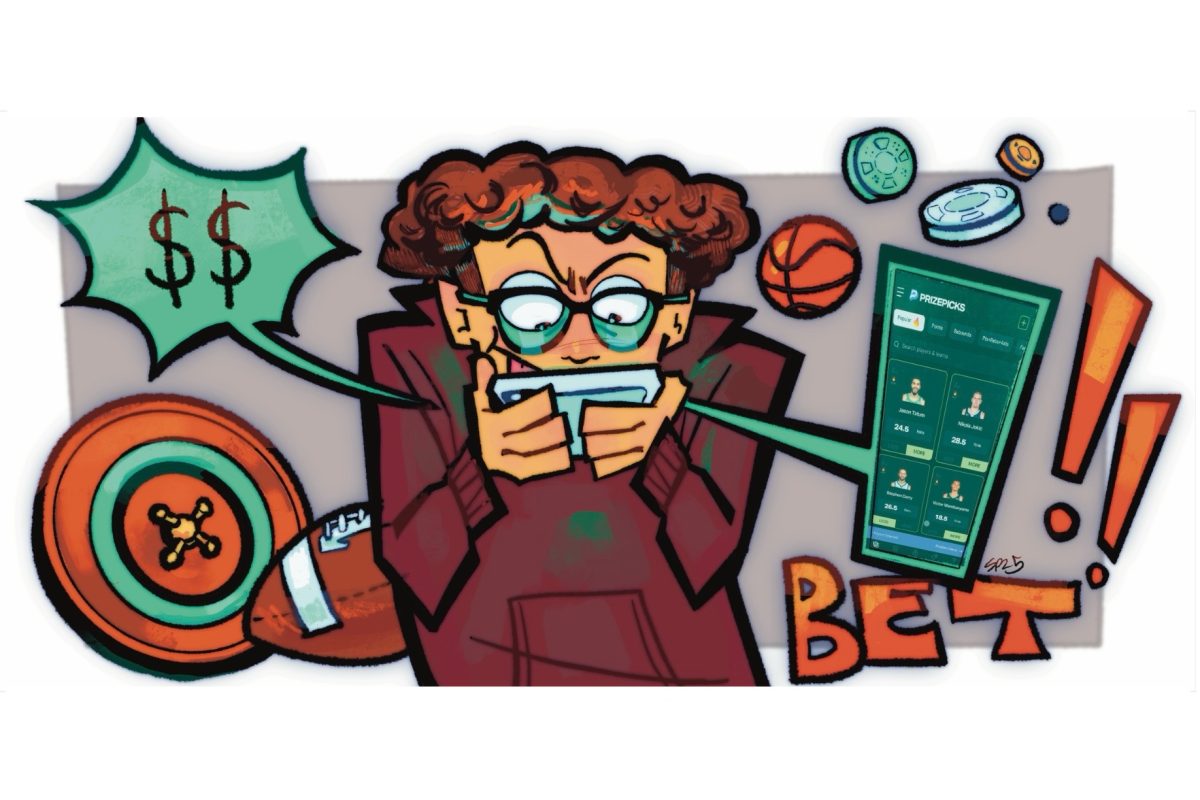The once-innocent reaction to a touchdown, a three-pointer or a home run could now cost high schoolers their savings. Online sports betting sites are surging in popularity, with online gambling increasing as a whole by around 24% year-over-year. This problem is only going to worsen, with the sports betting market projected to grow by around 11% by 2030, an increase of around $86 billion, according to Grandview Research. This has led to a concern that high schoolers may also be drawn into the realm of illegal gambling.
Sports betting is illegal, yet easily accessible to teenagers. Not only is gambling against the law, but it also poses significant threats to their mental health and safety.
“Most people, including high schoolers, are probably thinking, ‘What’s the harm in fantasy football? A small bet on the Super Bowl is not a big deal?’” mental health specialist Steve Lo said. “I think it’s important to be mindful and self-aware about one’s thoughts, intentions, behaviors and habits—and whether one’s choices are healthy and effective.”
A report from the Lancet Public Health Commission estimated that 16.3% of adolescents have gambling disorders, nearly double the rate of adults. Developing teen brains are more prone to impulsivity, and therefore more susceptible to addictive gambling behaviors.
This is worsened through an increase in accessibility of sites such as PrizePicks, Fliff and DraftKings that target teens through ads on social media and sponsorships with professional sports leagues like the NBA and NFL. The result? Sports betting is packaged to look like a game through the use of arcade-like graphics and gamified mechanics, such as leaderboards and betting streaks.
Teens can bypass platforms by borrowing a parent’s or older sibling’s ID or sharing accounts. Many sites don’t require strict age verification, as long as a card is linked to the account, making it easy for teens to sign up. Some sites skip verification altogether, since enforcing these laws is nearly impossible.
Recently, daily fantasy sports apps—as opposed to the more common season-long games—were deemed illegal by California Attorney General Rob Bonta. With a large culture around fantasy, people are often peer-pressured into joining. Once you add on the addictive aspect of gambling, sports bettors can face serious problems such as anxiety or addiction.
Like substance abuse, the constant dopamine from betting can rewire the brain, so sports betting should be treated just as seriously. School officials and parents alike are currently pushing for education to discourage gambling, mirroring anti-drug and vape campaigns. Many anti-gambling organizations exist, such as Betting On Our Future or California’s Office of Problem Gambling Health Education Program. Although there are legal repercussions, including fines from $100 to $1,000 or probation, these consequences are not often enforced.
Although teens think that they are only risking $10 to $20 to hit their 10-leg parlay, the reality is that they are putting their own well-being on the line. This problem is worsening, and it’s necessary for sports betting among high schoolers to stop, before they bet on a losing future.
If you are in need of help, please contact the National Problem Gambling Helpline Network at 800-522-4700.





















































